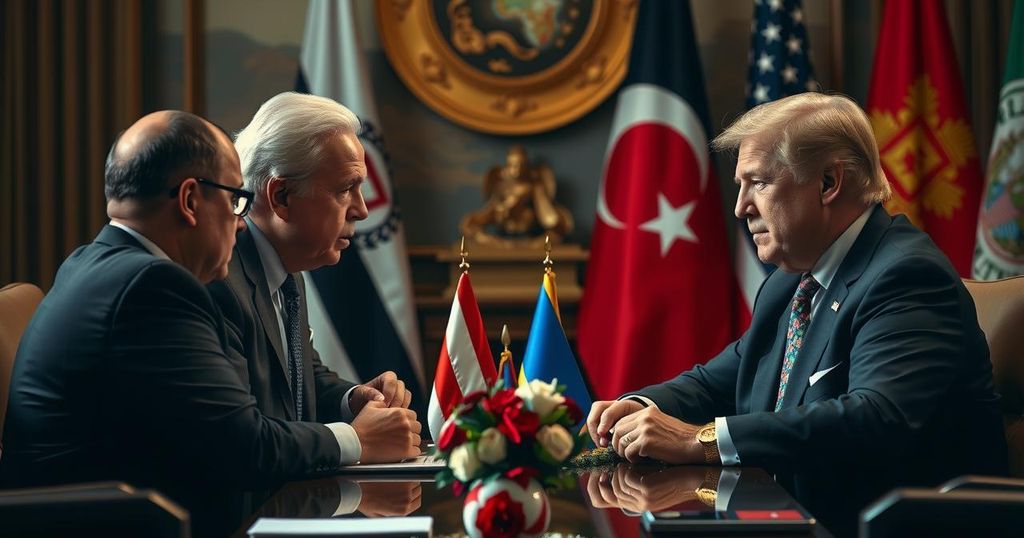Chinese President Xi Jinping has committed to working with incoming President Donald Trump during a meeting with outgoing President Joe Biden at the Apec summit. This meeting reflects hopes for stable U.S.-China relations despite predictions of heightened tensions due to Trump’s tariffs and foreign policy approach. Biden warned against escalating competition into conflict, emphasizing the need for responsible diplomatic engagement.
In a pivotal meeting on the sidelines of the Asia-Pacific Economic Cooperation (Apec) summit in Peru, Chinese President Xi Jinping expressed a commitment to collaborate with incoming President Donald Trump. The meeting, which served as Xi’s final interaction with current President Joe Biden, acknowledged the complexities that characterized U.S.-China relations during Biden’s administration. Both leaders recognized the progress made in diminishing tensions over issues such as trade and Taiwan, despite the backdrop of fluctuating relations. Analysts anticipate a potential increase in U.S.-China tensions as Trump reinstates policies that may elevate tariffs on Chinese goods, notably his proposed 60% tariffs, alongside a cabinet filled with officials known for their hawkish stances towards China. During the meeting, President Xi reiterated Beijing’s intention to maintain stable relations with Washington, emphasizing communication and cooperation as key components. In contrast, President Biden cautioned against the risk of competition escalating into conflict, underscoring the need for responsible management of U.S.-China relations amid ongoing disputes, including military tensions surrounding Taiwan and the contentious narrative of COVID-19. Although Biden’s administration continued tariffs initiated during Trump’s tenure, it also engaged in cooperative discussions on other crucial global issues, indicating a multifaceted approach to U.S.-China relations that seeks to balance rivalry with dialogue. The unpredictability of Trump’s administration raises concerns for China, as there may be uncertainties about how to effectively navigate and influence U.S. policy moving forward. This complex backdrop underscores the precarious nature of the U.S.-China relationship, with both nations tasked with mitigating tensions while acknowledging their strategic competition in various arenas.
The article discusses a critical meeting between Chinese President Xi Jinping and U.S. President Joe Biden, where Xi affirmed his willingness to collaborate with incoming President Donald Trump. This meeting took place in the context of longstanding challenges in U.S.-China relations, highlighted by previous tensions during Trump’s first term. Analysts predict that Trump’s return is likely to exacerbate these tensions through aggressive tariff policies and his previous characterization of China as a major adversary. Furthermore, Biden’s approach has involved both upholding many of Trump’s tariffs and forming stronger defense alliances in response to China’s assertiveness in Asia, particularly regarding Taiwan. The dynamics reflect a critical juncture in how both nations will navigate their future interactions.
In conclusion, the recent meeting between Xi Jinping and Joe Biden, alongside Xi’s overture to work with Donald Trump, encapsulates the complex and evolving nature of U.S.-China relations. With the potential for increased volatility under a Trump administration, driven by aggressive economic policies and geopolitical assertions, both nations face the challenge of managing competition without allowing it to devolve into conflict. This highlights the need for strategic engagement, dialogue, and a careful balancing act in international diplomacy.
Original Source: www.bbc.com






